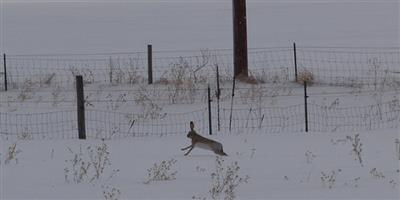The Wyoming Livestock Board is asking rabbit owners to be aware of their hares as a rapidly spreading, infectious, and contagious viral disease is knocking on the backdoor of the Northern Ag country.
Rabbit Hemorrhagic Disease Virus 2 (RHDV2), has recently been confirmed in New Mexico, Texas, Colorado, California, Nevada, and Arizona in both domestic and wild rabbits. RHDV2 is highly contagious, fatal, and affects domestic, feral, and wild rabbits, including hares, jackrabbits and cottontails.
The disease is caused by calicivirus, a viral pathogen that has been shown to affect rabbits in North America, and in other parts of the world. This viral pathogen can cause sudden death in rabbits, and can be spread through direct contact with other infected rabbits, their meat or their fur, or materials coming in contact with them.
Humans, non-rabbit domestic pets and livestock, have not been shown to develop clinical signs of RHDV2 infection. The Wyoming Livestock Board wants the public to also know, this virus is NOT related to coronavirus or COVID-19.
Rabbit owners are advised to enhance their typical biosecurity measures, by not allowing visitors to rabbitries, keeping wild rabbits from co-mingling with domestic/pet rabbits (i.e. fencing), and limiting new animal introduction including a proper quarantine period for new individuals.
Additionally, good biosecurity measures for rabbit owners should include; hand washing before and after working with rabbits, a change of clothing/footwear, and not sharing equipment with other rabbit owners. Rabbit owners who have questions about this disease should contact their veterinarian.
RHDV2 is a reportable disease in Wyoming and the United States and anyone suspecting the disease in domestic rabbits are required to report to the State Veterinarian and USDA APHIS immediately. Any suspect wild rabbit deaths should be reported to the Wyoming Game & Fish Department’s State Wildlife Veterinarian at the Wildlife Health Laboratory (307-745-5865).
Additionally, anyone that comes into contact with dead game is advised to wear gloves if handling/cleaning carcasses, and to not harvest sick animals.
####
Wyoming Livestock Board
Northern Ag Network -2020


